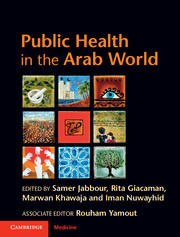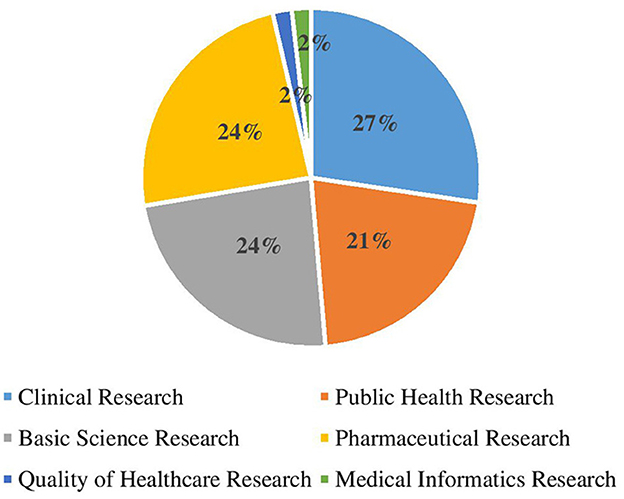Introduction
Overview of the importance of public health and scientific research in Arab countries
Public health and scientific research play pivotal roles in improving the well-being of individuals and communities in Arab countries. By focusing on preventive measures, identification of health risks, and implementing evidence-based interventions, Arab nations can effectively mitigate the burden of diseases and promote a healthier population. Moreover, scientific research enhances medical knowledge, helps develop innovative solutions, and drives advancement in healthcare systems. A strong emphasis on public health and scientific research empowers Arab countries to address various health challenges and ensure sustainable development for their populations.
Challenges in public health and scientific research in Arab countries
Despite the importance of public health and scientific research, Arab countries face several challenges in these domains:
Limited funding and resources: Many Arab countries struggle to allocate adequate funds and resources towards public health initiatives and scientific research projects. This hinders the implementation of comprehensive programs and affects the quantity and quality of research being conducted.
Brain drain: The emigration of skilled healthcare professionals and scientists poses a significant challenge for Arab countries. The loss of expertise further limits their capacity to tackle public health issues and conduct meaningful research.
Access to information and technology: Limited access to up-to-date scientific literature and research tools can impede progress in Arab countries. This hinders the ability to develop effective interventions and contribute to the global scientific community.
Cultural barriers: Cultural beliefs and practices can sometimes present barriers to public health interventions, such as vaccination campaigns or reproductive health initiatives. Overcoming these barriers requires sensitivity and tailored approaches to ensure the acceptance and effectiveness of interventions.
Efforts to overcome challenges and promote public health and scientific research in Arab countries
To address these challenges, Arab countries are taking various initiatives to promote public health and scientific research:
Increased investment: Governments and international organizations are recognizing the importance of public health and scientific research and are increasing funding in these areas. This allows for the development of comprehensive programs and the recruitment of skilled professionals.
Capacity building: Efforts are being made to enhance the capabilities of healthcare professionals and scientists through training and education opportunities. This helps build a skilled workforce and encourages research collaboration.
Collaboration and networking: Arab countries are increasingly collaborating with international partners and participating in global research networks. This facilitates knowledge exchange, access to resources, and promotes high-quality research.
Community engagement: Engaging with communities and involving them in decision-making processes improves the acceptance and effectiveness of public health interventions. This helps address cultural barriers and ensures the relevance of interventions.
In conclusion, public health and scientific research are vital for the development and well-being of Arab countries. Despite challenges, efforts are being made to overcome these obstacles and promote a culture of research and evidence-based interventions. Through increased investment, capacity building, collaboration, and community engagement, Arab countries are on a path towards achieving sustainable and improved public health outcomes.

Public Health Initiatives
Key public health initiatives and policies in Arab countries
- Increased funding and resources allocation towards public health programs
- Development of comprehensive disease surveillance systems
- Promotion of healthy lifestyles, including nutrition and physical activity
- Improvement of vaccination coverage and immunization programs
- Implementation of reproductive health initiatives and family planning services
Impact of public health campaigns on disease prevention and control
- Reduced the incidence and prevalence of communicable diseases such as tuberculosis and hepatitis
- Increased awareness about non-communicable diseases like diabetes and cardiovascular diseases
- Promoted early detection and screening programs for cancer
- Raised awareness about the importance of mental health and provided support services
- Improved access to healthcare services and health education in remote areas
These initiatives have resulted in improved health outcomes and a reduction in the burden of diseases in Arab countries.

Scientific Research Institutions
Prominent scientific research institutions in Arab countries
Contributions of these institutions to advancements in health and science

Health Awareness Programs
Health awareness programs and campaigns in Arab countries
Prominent scientific research institutions in Arab countries, such as King Abdulaziz City for Science and Technology (KACST) in Saudi Arabia and Hamad bin Khalifa University (HBKU) in Qatar, have been actively involved in promoting health awareness. They have launched various programs and campaigns to educate the public about preventive measures and healthy lifestyles. These initiatives aim to raise awareness about common diseases, such as diabetes and cardiovascular diseases, and provide information on the importance of regular check-ups and early detection.
Efforts to promote healthy lifestyles and prevent diseases
In addition to raising awareness, these institutions have been working on initiatives to promote healthy lifestyles and prevent diseases. They have developed programs that focus on nutrition, exercise, and mental health, aiming at improving overall well-being. Through partnerships with healthcare providers and community organizations, these institutions have been able to reach a wide audience with their messages. By encouraging individuals to adopt healthier habits, they hope to reduce the burden of chronic diseases and improve public health in Arab countries.

Disease Surveillance and Control
Strategies for disease surveillance and control in Arab countries
Role of technology in monitoring and responding to health threats

Research Focus Areas
Current research focus areas in health and science in Arab countries
Prominent scientific research institutions, such as King Abdulaziz City for Science and Technology (KACST) in Saudi Arabia and Hamad bin Khalifa University (HBKU) in Qatar, are actively engaged in researching various areas of health and science in Arab countries.
Some of the current focus areas include:
- Disease prevention and control: Research is being conducted to better understand the epidemiology of diseases prevalent in the region, identify risk factors, and develop effective strategies for prevention and control.
- Genetic and genomic studies: Researchers are exploring the genetic factors that contribute to the development of diseases, as well as studying the genomic changes associated with different conditions.
- Biomedical research: Arab countries are investing in biomedical research to develop new drugs, therapies, and diagnostic tools that can improve healthcare outcomes.
- Environmental health research: With a focus on the impact of environmental factors on public health, research is underway to assess air and water quality, occupational health hazards, and the effects of climate change on health.
- Health systems research: Efforts are being made to evaluate and improve healthcare systems in Arab countries, including studying the accessibility, affordability, and quality of care.
Through these research endeavors, Arab countries aim to enhance their healthcare systems, address prevalent health challenges, and contribute to the global scientific community.






